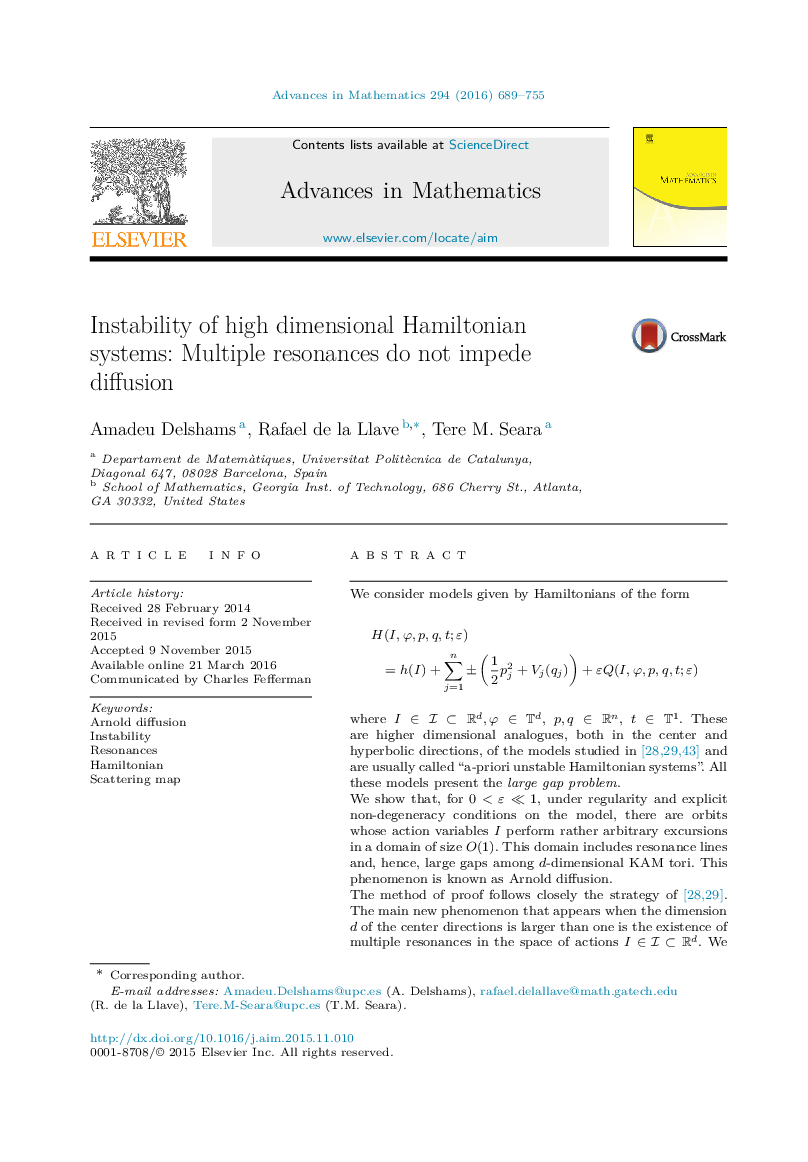| Article ID | Journal | Published Year | Pages | File Type |
|---|---|---|---|---|
| 4665181 | Advances in Mathematics | 2016 | 67 Pages |
We consider models given by Hamiltonians of the formH(I,φ,p,q,t;ε)=h(I)+∑j=1n±(12pj2+Vj(qj))+εQ(I,φ,p,q,t;ε) where I∈I⊂Rd,φ∈TdI∈I⊂Rd,φ∈Td, p,q∈Rnp,q∈Rn, t∈T1t∈T1. These are higher dimensional analogues, both in the center and hyperbolic directions, of the models studied in [28], [29] and [43] and are usually called “a-priori unstable Hamiltonian systems”. All these models present the large gap problem.We show that, for 0<ε≪10<ε≪1, under regularity and explicit non-degeneracy conditions on the model, there are orbits whose action variables I perform rather arbitrary excursions in a domain of size O(1)O(1). This domain includes resonance lines and, hence, large gaps among d-dimensional KAM tori. This phenomenon is known as Arnold diffusion.The method of proof follows closely the strategy of [28] and [29]. The main new phenomenon that appears when the dimension d of the center directions is larger than one is the existence of multiple resonances in the space of actions I∈I⊂RdI∈I⊂Rd. We show that, since these multiple resonances happen in sets of codimension greater than one in the space of actions I, they can be contoured. This corresponds to the mechanism called diffusion across resonances in the Physics literature.The present paper, however, differs substantially from [28] and [29]. On the technical details of the proofs, we have taken advantage of the theory of the scattering map developed in [31]—notably the symplectic properties—which were not available when the above papers were written. We have analyzed the conditions imposed on the resonances in more detail.More precisely, we have found that there is a simple condition on the Melnikov potential which allows us to conclude that the resonances are crossed. In particular, this condition does not depend on the resonances. So that the results are new even when applied to the models in [28] and [29].
